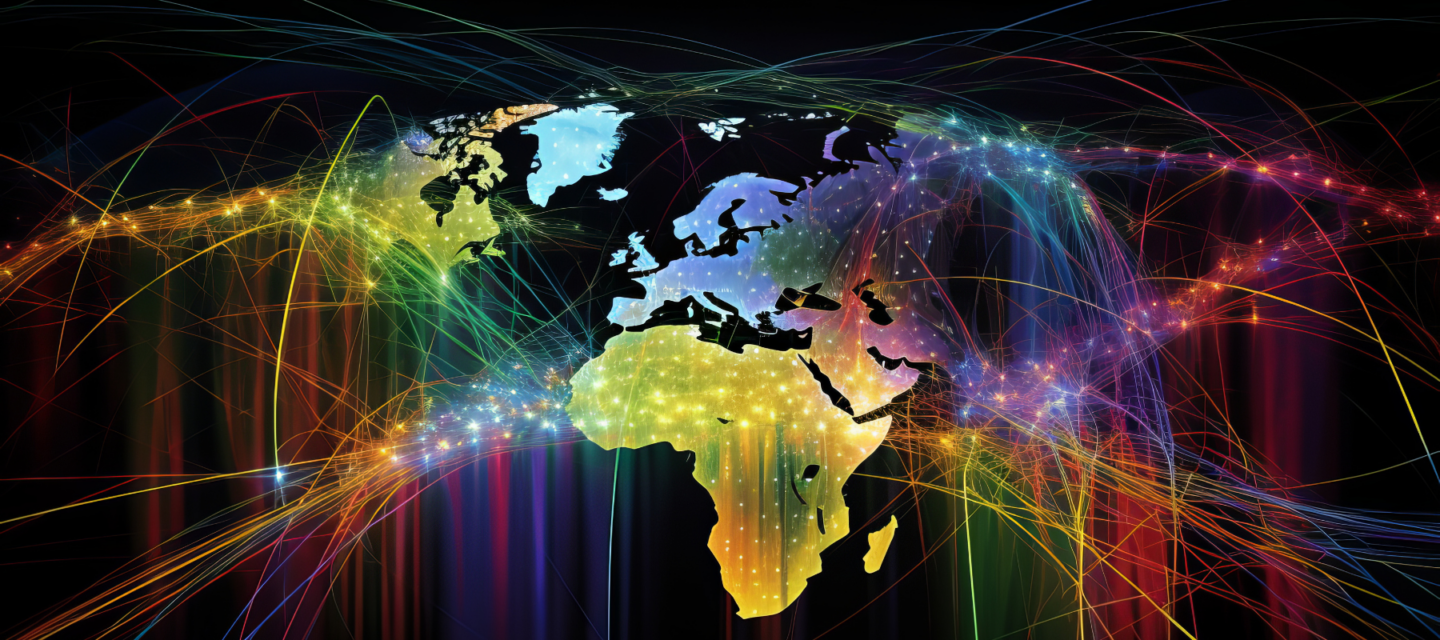
This much I know: 9 leadership lessons from global CEOs
From absorbing stress to finding your authentic voice, nine leaders of global companies share the wisdom that has helped them excel in their roles. ...

by Richard Baldwin Published July 25, 2024 in Brain Circuits • 7 min read
If it’s cheaper to hire a translator, programmer, social media manager, or designer in another country, why not cross international borders for your required service? While today’s information and communication technologies enable the arbitrage of labor services, some are still doubting what difference this makes on the ground.
Test how well you know what’s happening in the realm of trade with this quick, three-question quiz:
A. Manufactured goods
B. Foreign direct investment (FDI)
C. Information and communication technology (ICT)-enabled services
Whatever rumors you may have heard about deglobalization are simply not happening, most especially in the realm of services. The world is growing closer here, with important implications for the future of work.
A. European Union member states
B. The United States
C. Emerging economies
Although developed countries, such as the United States and EU member states, are where most modern service exports originate, the share from developed economies is growing considerably faster. Look at what happens in the second chart above when we set 2016’s service export levels at 100 for both developed and emerging economies: Since that point, developed countries have grown 41% compared with 59% for emerging economies.
A. Investments in three categories – services, manufacturing, and other non-services – are evening out over time
B. Manufacturing continues to be an FDI magnet
C. Services are increasingly dominating
Over time, we’ve seen the focus in FDI shift decisively from trade to services. A recent report from the UN Trade and Development (UNCTAD) makes this clear. In the most recent data from 2022-2023, 81% of FDI is promoting service activities, with only 13% for manufacturing. So, in terms of this form of openness and globalization, it is a game of services, not of manufacturing.
My 2024 prediction still holds that simultaneous speech translation (SST) will make service exports even more attractive around the globe. English speakers be prepared: When offering your skills to the labor market, you are likely to face much tougher competition as the language barriers crumble.
Why is manufacturing-export-led growth so difficult?
Globalisation’s evolving landscape (UNCTAD spotlight intervention): PDF and video

Professor of International Economics at IMD
Richard Baldwin is Professor of International Economics at IMD and Editor-in-Chief of VoxEU.org since he founded it in June 2007. He was President/Director of CEPR (2014-2018), a visiting professor at many universities, including MIT, Oxford, and EPFL, and a long-time professor of international economics at the Graduate Institute in Geneva. Richard is an expert in global economic policy and theory, specializing in international trade.

July 10, 2025 • by Jean-François Manzoni in Brain Circuits
From absorbing stress to finding your authentic voice, nine leaders of global companies share the wisdom that has helped them excel in their roles. ...

July 8, 2025 in Brain Circuits
According to the World Health Organization, depression and anxiety cost the global economy $1tn each year, predominantly from reduced productivity. Here are six simple habits, taken from design thinker Vishakha Singh’s SHIFT...

July 4, 2025 • by Rachel Polla in Brain Circuits
How many times did I secretly wish for my father to leave the business and leave me the sole “Queen” on board? Ten years later, I cannot imagine working without him by...

July 3, 2025 • by Eric Quintane in Brain Circuits
Entrepreneurial talent who work with other teams often run into trouble with their managers. Here are ways to get the most out of your ‘boundary spanners’...
 Audio available
Audio availableExplore first person business intelligence from top minds curated for a global executive audience